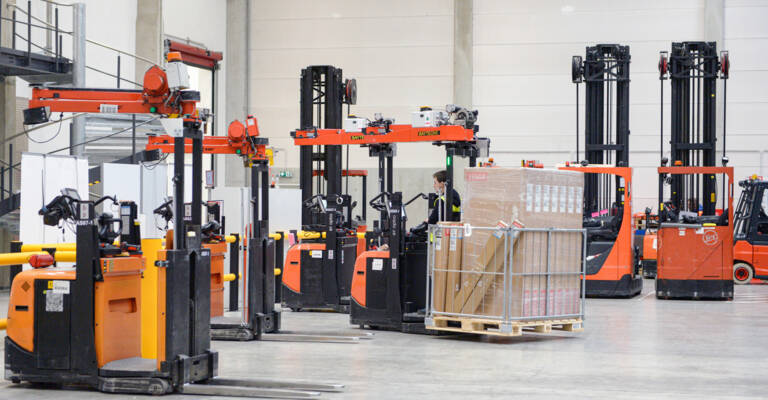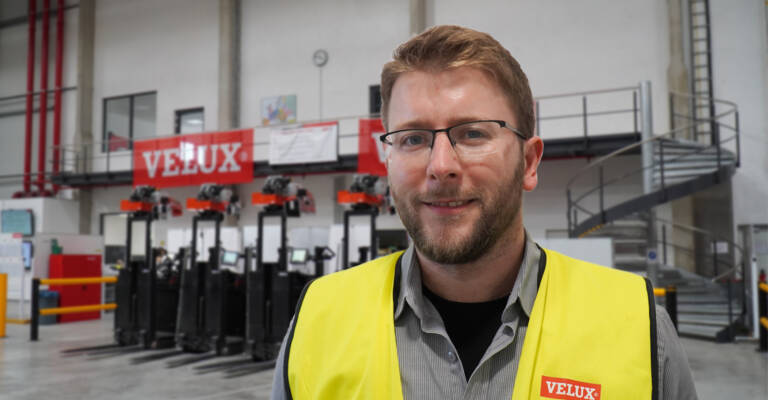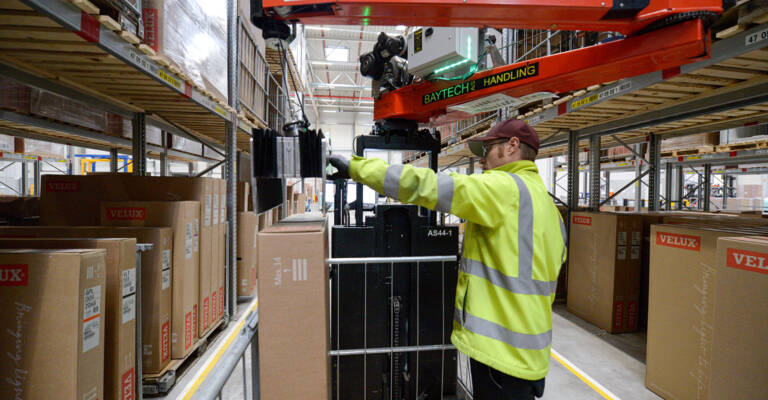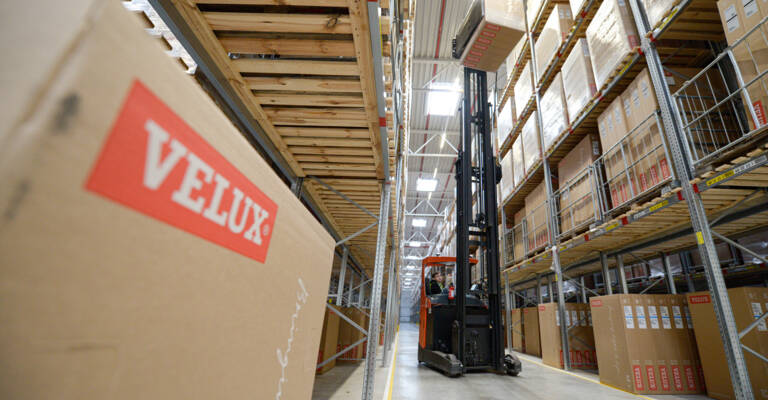More insights in the VELUX central warehouse thanks to Toyota’s fleet management solution

Facts & figures
- Company: Velux
- Location: Sonneborn, Germany
- Industry: Manufacturing
- Solutions: I_Site fleet management on 43 warehouse trucks
About Velux
JTJ Sonneborn Industrie GmbH, based in Sonneborn, Germany, produces high-quality wood and plastic windows for the VELUX Group in the German market and for Europe-wide export. With the help of a very modern vehicle fleet on a total area of approx. 230,000 sqm, the company stands for state-of-the-art manufacturing technology, high productivity and continuous quality improvement.
In 2018, the European central warehouse moved from Kolding in Denmark to Sonneborn in Thuringia, the largest restructuring that VELUX has ever undertaken. This was an enormous challenge for people and machines. For more clarity and transparency, all vehicle and operating data is gathered in the Toyota fleet management system I_Site.
Since 2018, Toyota Material Handling has been equipping all warehouse trucks with a telematics unit to transfer relevant data to I_Site. This way, VELUX can measure the performance and utilisation of its vehicles, as well as the efficiency in key areas such as cost control and safety.

Safety first
90 logistics employees ensure that everything runs smoothly in Sonneborn. Many of them are new and need training to operate the special devices to avoid damage to shelves, loads and vehicles. The handling of the windows and devices is very delicate. But the safety of the employees has priority. "Velux has set itself the goal of the so-called Vision Zero, which means completely preventing work accidents," says Jan Driessen, Director ECW (European Central Warehouse). The Toyota I_Site fleet management system will support this. By monitoring all forklifts, VELUX can use every driver in an optimal way and even offer additional training. To prevent accidents, the speed of the forklifts can be limited. If something should happen, the truck sends data from the shock sensors and clearly dates it. So you can react immediately in case of an emergency.

Telematics inside
Also the specialised vehicles, which are tailor-made for VELUX, were moved from Kolding to Sonneborn. They are handy, flexible, agile and allow the construction of a special crane. "The machines are all tailored to our delicate goods, that are palletised or transported in cubes, a special packaging method for windows," explains Jan Driessen. All trucks in Sonneborn - also third-party ones – are Toyota "Smart Trucks", which means they are equipped with telematics technology that transmits all relevant truck data to I_Site. The aim is to avoid waste regarding unused forklifts and to reduce errors and damage.
More reliability and cost transparency
"We work in 3 shifts. On average, 800 cubic metres of goods leave the warehouse every day, which is about 25 lorries. And 18 to 20 come in," says Driessen. With such a high turnover, reliability is key. Of course, the costs are also an important factor. There is a lot of activity during the construction season, during which all forklifts are used around the clock. In winter, on the other hand, it is important to keep up the truck utilisation. With I_Site, VELUX can quantify how long a machine has been in operation, which improves the process planning. This way, peaks and falls in capacity utilisation can be compensated for.

Fewer devices, more efficiency
The European VELUX central warehouse has 47 forklifts connected to I_Site. "The data collected so far by I_Site clearly shows that we were able to achieve improved truck utilisation and thus higher efficiency," confirms Patrick von Bismarck, head of the ECW central warehouse department. "We could even optimise our fleet so that we could put four of our trucks aside. They can now be used as a back-up when required." Short-term rental solutions from Toyota make this possible.
Service every day
A Toyota service technician ensures that the forklifts break down as little as possible when fully loaded. "Of course, something can break," says Jan Driessen, "But then it should also be repaired quickly. That's why we have someone from Toyota Service here on site almost every day, and we need that too. We are a 24-hour business." The foundation for the close cooperation with Toyota Material Handling was laid years ago in Denmark. And by integrating I_Site, it is continuously optimised.
